Ryder Cup 2020: Five things US captain Steve Stricker will be considering
By Keith Jackson
Last Updated: 21/02/19 8:57am
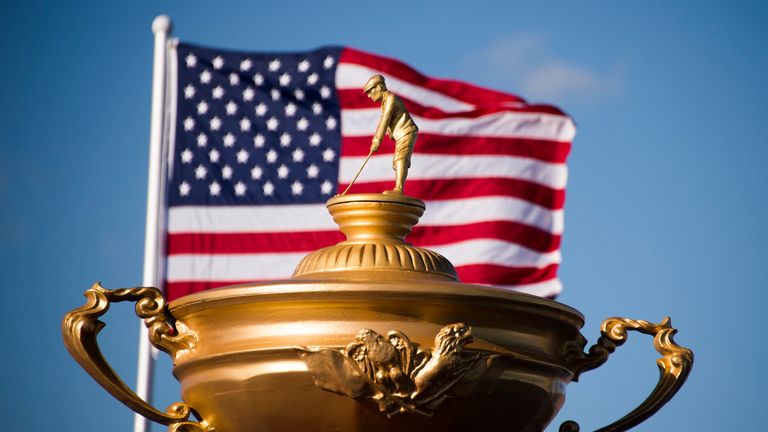
Steve Stricker had already started drawing up a battle plan for 2020 before he was officially unveiled as Ryder Cup captain, but what are the five most important keys to a home win next year?
The course set-up
Stricker and his advisors will pay particular attention to what style of course has suited the American players in the past, and I suspect they will use Hazeltine as a blueprint for success.
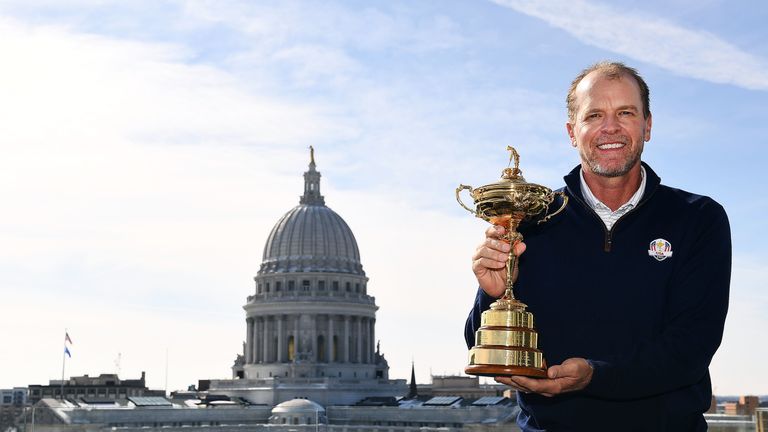
Wide fairways, almost non-existent rough and accessible pins played into the hands of the big-hitting US team in 2016. Their proximity to the hole was superior to Europe overall, and there is no doubt the set-up was a big factor in a six-point win for Davis Love's side.
Two years later, many of Jim Furyk's players struggled to come to terms with a tight course that rewarded strategy, patience and accuracy ahead of raw power, and the idea of having to hit a four-iron from the tee at a par-four seemed alien to them.
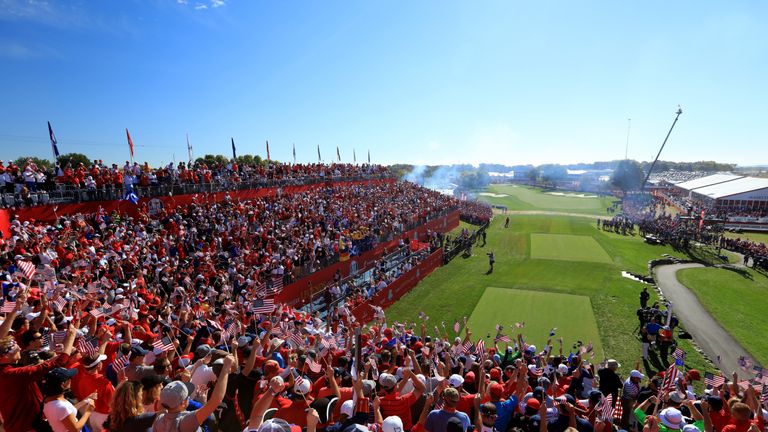
Setting up Whistling Straits in an identical way to Hazeltine will be tougher to implement due to the lie of the land on the shores of Lake Michigan, but we can certainly expect a significant increase in birdies compared to Le Golf National last year.
Team unity
The USA got off to a flying start in Paris last year and put three red points on the board on Friday morning, only for "Moliwood" to beat a jaded Tiger Woods and an irritated Patrick Reed to ignite a remarkable turnaround, with Europe winning the next seven matches.
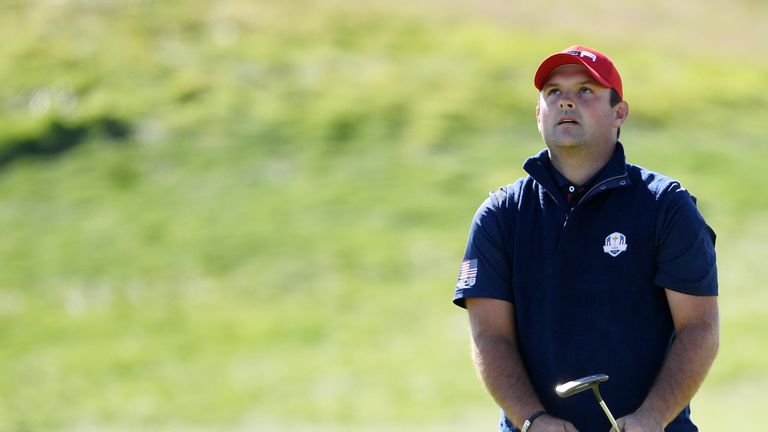
Justin Thomas and Jordan Spieth stopped the rot in the final fourballs match on day two, but the damage had been done both on and off the course and it later became clear there had been much unrest in the visitors' locker room.
As the Americans boarded the plane home, reports emerged of an "altercation" between Dustin Johnson and Brooks Koepka, while Reed vented his frustration that; (a) He played in only three sessions, two of them resulting in defeats with Woods, and (b) His previously-successful partnership with Spieth was not renewed in Paris.
Rumours of other "altercations" were not verified, but highly probable, while Phil Mickelson did not hold back when asked his opinion of the course, describing it as "almost unplayable" and "a waste of my time". He played only twice, lost heavily both times and spent more time in the "brutal" rough than the short grass.
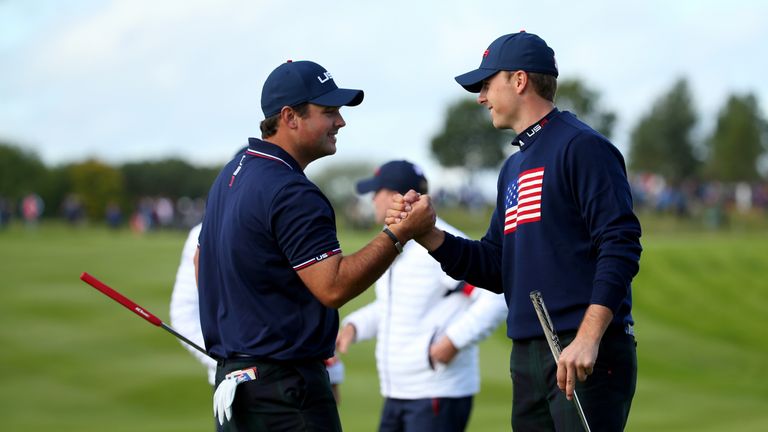
When Stricker was unveiled as captain, he said: "Communication is my biggest thing." He saw, first-hand, how the behind-the-scenes rows contributed to the capitulation in Paris, and his message to his players at Whistling Straits will be loud and clear: "Leave your egos at the door".
That was one of the messages plastered on the walls of the US team room in Paris. Next year, one of Stricker's biggest priorities will be to make sure this message gets through. As Woods explained in Mexico, Stricker will welcome the opinions of his players, but he will "put his foot down when he needs to."
Course knowledge
There is a fair chance a few of Stricker's players will have had the chance to play in tournament conditions at Whistling Straits in 2015, when the course last hosted the PGA Championship. Woods and Mickelson also featured in the two previous PGAs at the Kohler venue, in 2004 and 2010.
As mentioned above, the set-up is likely to be different for the Ryder Cup, although Jason Day's winning score of 20-under par over 72 holes proves the course can be overpowered even before Stricker and his backroom team tinker with the layout.
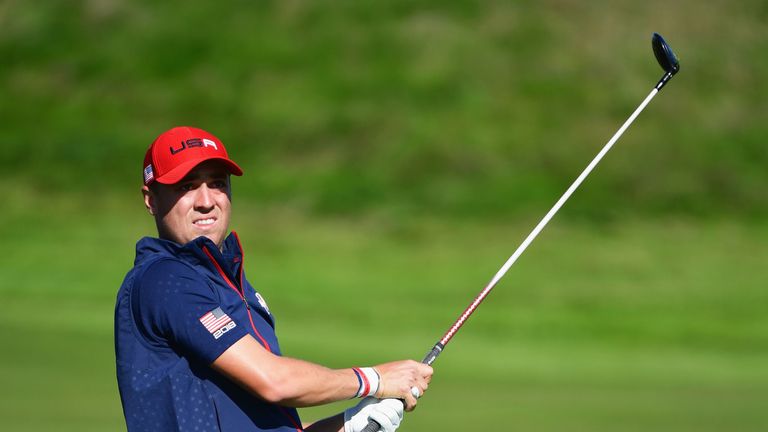
But one of the lessons learned from the 2018 defeat was that recent course knowledge can have an impact. Justin Thomas delivered four points from his five matches and was the leading scorer for Team USA. Was it a coincidence that he was the only one of Furyk's team to have made the effort to play in last summer's French Open on the same course?
With Stricker now able to finalise his line-up three weeks in advance of the next Ryder Cup, he will surely be planning to take all 12, plus a couple of reserves, on a reconnaissance mission to Whistling Straits to get them acquainted with all the challenges the course presents. Such preparation was sadly lacking last year.
Feed off the fans
Despite a minority crossing the line on occasions, the home fans at Brookline, Valhalla and Hazeltine played a significant role in the three American Ryder Cup wins since 1999.
Wisconsin natives love their sport, and they will be encouraged to act as a 13th man for Stricker's team, bringing colour, noise and creating an atmosphere that will not only spur the home players on, but be as intimidating as possible for Padraig Harrington's side.
Stricker is possibly not the type to follow Paul Azinger's lead and organise a "pep rally" to whip the locals into a frenzy, but they will need little prodding. Anyone who has been to watch the Packers, the Bucks or the Brewers in their home environment can testify to that.
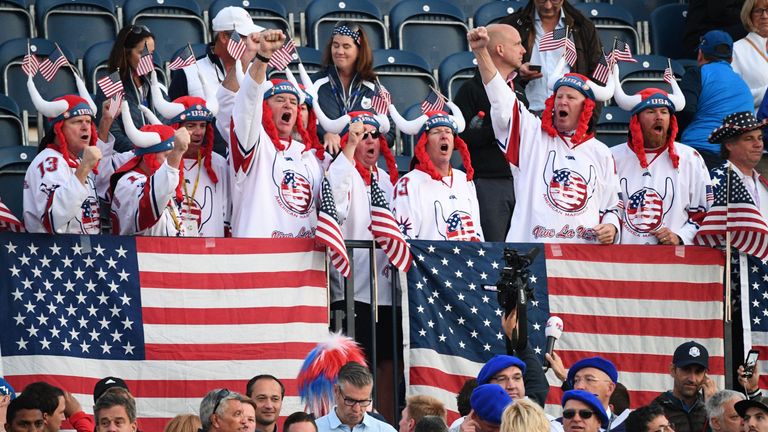
Obviously, we do not want to see a repeat of the unsavoury, hostile scenes that took some of the focus off the golf in previous contests in the US, but Stricker's respect for the history and etiquette of the game will - hopefully - be taken on board by the spectators in his home state.
The effect of the patriotic, fervent and high-volume galleries at Hazeltine on the home players was abundantly evident, and the same can be said of the support for Europe in Paris. The one huge drawback for Team USA to avoid next year is, if they start falling behind, having the home fans turn on their own would undoubtedly finish them off. Remember Detroit?
Don't shun the rookies
When the USA ended a run of three straight defeats - two of them by record margins - at Valhalla in 2008, half of Paul Azinger's team were Ryder Cup rookies. As Phil Mickelson observed afterwards, the six debutants were a huge benefit to the team as they were not "scarred" by the pain of having to watch the opposition captain being presented with the trophy ... many times!
Thomas Bjorn was saddled with five rookies among his automatic qualifiers last year, and all of them recorded at least one win in a combined nine points, with Tommy Fleetwood's four victories matching the 2016 rookie haul of Thomas Pieters.
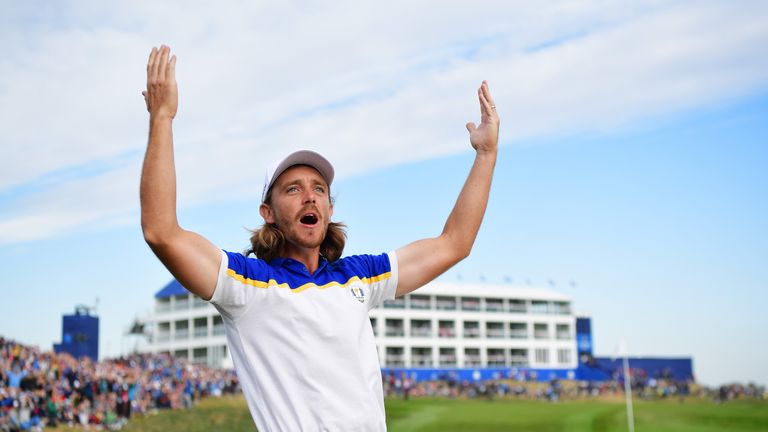
When handled and welcomed appropriately, an in-form, fearless rookie can be a huge asset to any Ryder Cup team. The debutants need to be embraced and encouraged, without giving a hint of a notion that their inexperience could cost the team a few points here and there.
Tom Watson did not deserve to be "thrown under the bus" by Mickelson at a heated press conference shortly after a lacklustre performance at Gleneagles in 2014, but Watson's decision to opt for tried and trusted over the hot hands with his three wildcard picks was one of the key factors in the outcome.
Stricker must not be afraid to throw raw talent into the mix if they are in form. Just because he might already have four rookies in his eight automatic qualifiers, that should not leave him fearful of adding a couple more after the Tour Championship.









